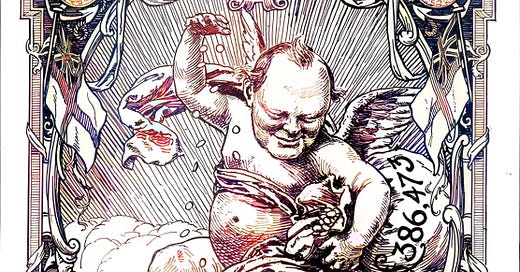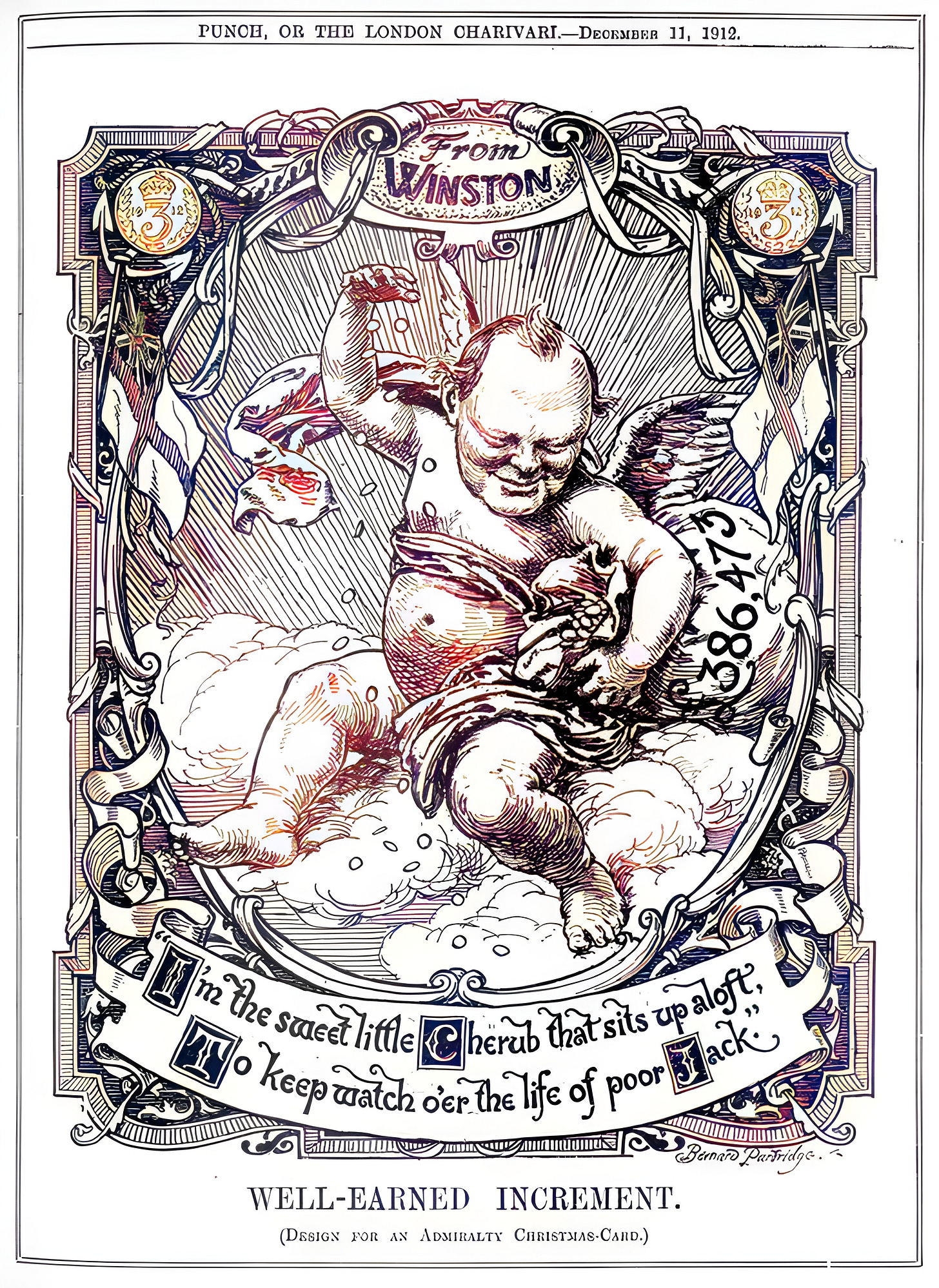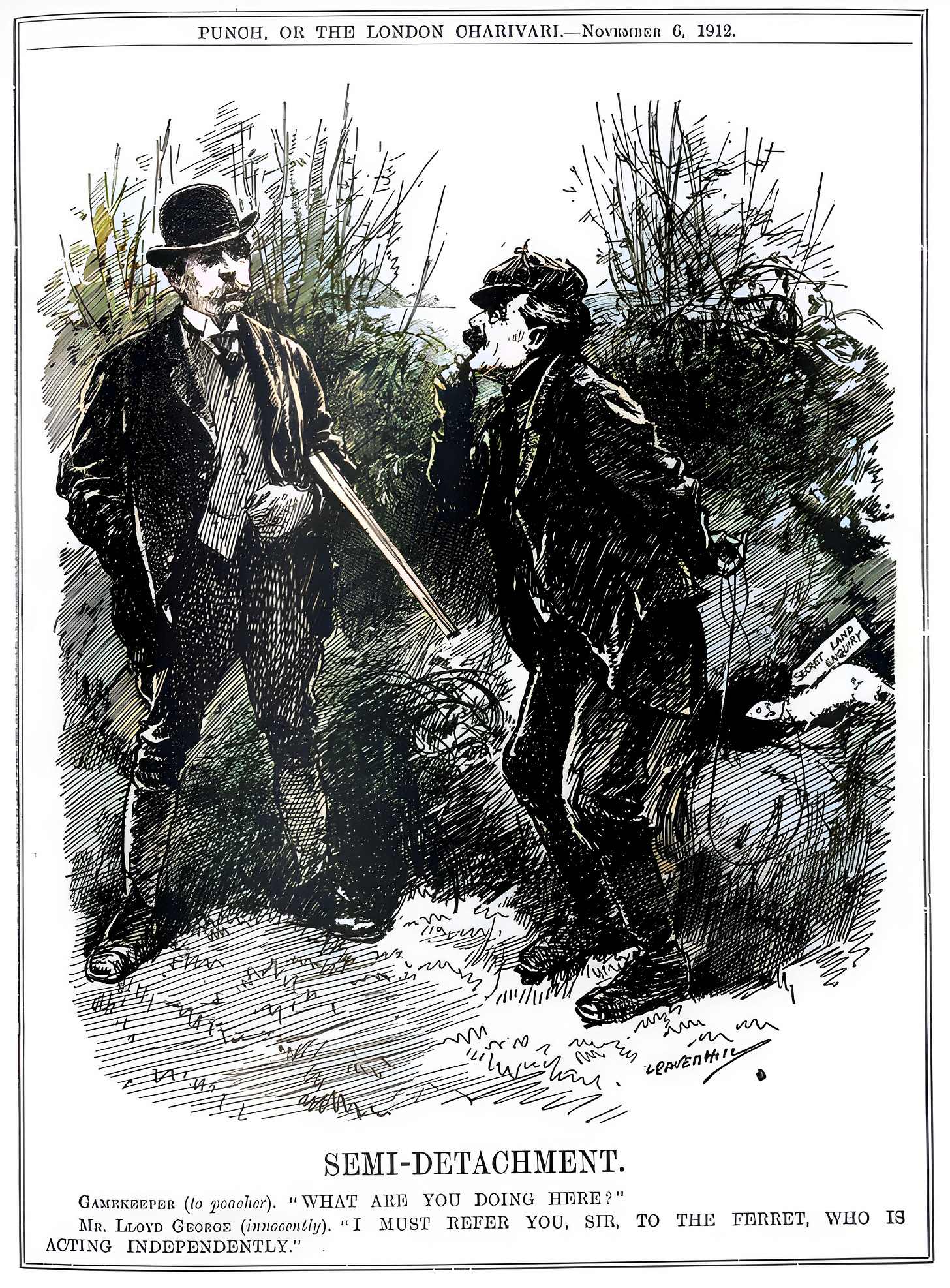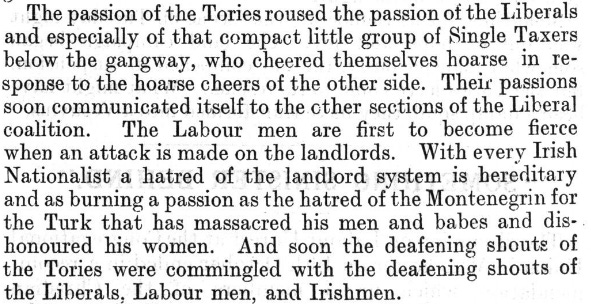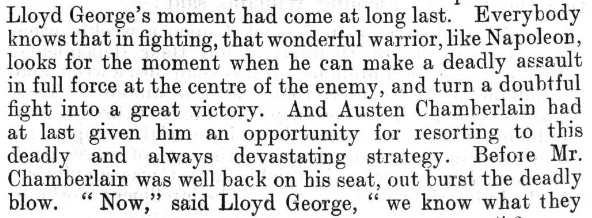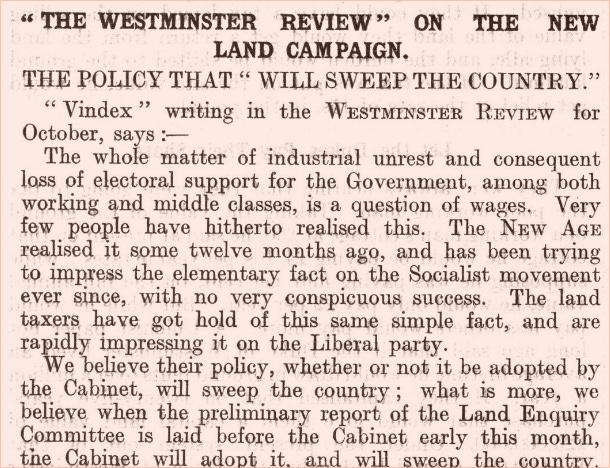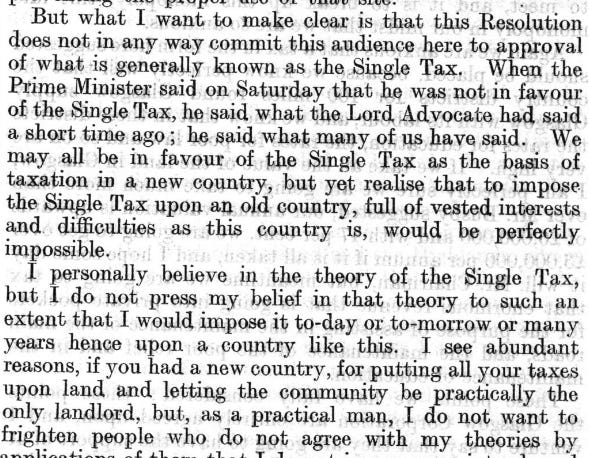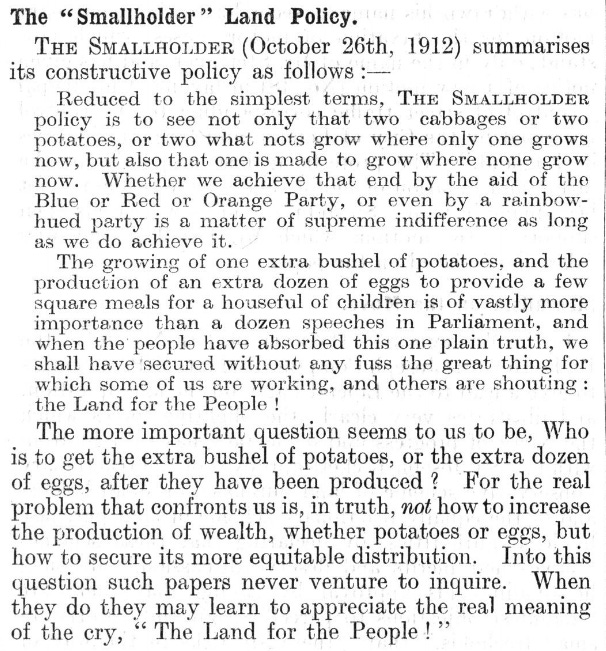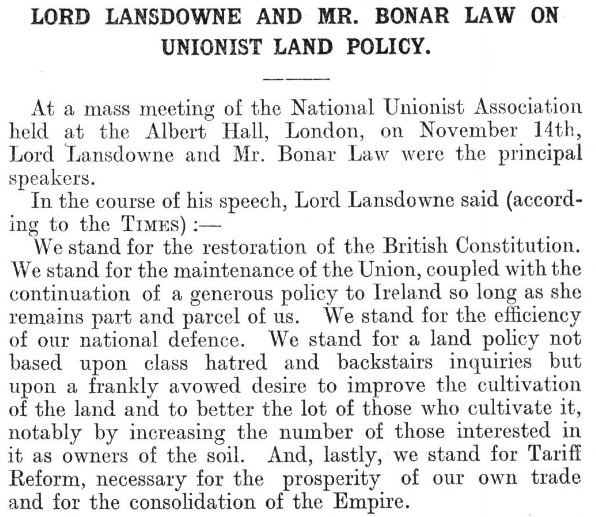The Single Tax v World War One (15) November-December 1912
"The beginning of one of the greatest revolutions in English history"
Churchill stopped his land campaigning when he moved to the Admiralty in 1911 where he lobbied for greater naval funding. Lloyd George complained that he was pushing the country towards bankruptcy. This Punch cartoon references JS Mill’s concept of “The Unearned Increment”, which was central Single Tax philosphy, and was widely discussed. The cartoon implies the concept was well known in 1912.
Lloyd George’s Land Equiry continued to generate press and lead to extraordinary scenes in the House of Commons (see below).
In this part, the term “Single Tax” causes panic. Confused attempts to differentiate the term from the taxation of land values ensues.
To proclaim the universal truth that land is of natural right common property; to abandon all timid and half-way schemes which attempt to compromise between justice and injustice, and to demand nothing more nor less than a full recognition of this natural right would be to do this. It would inevitably be to put the British masses upon inquiry; to put British landholders upon the defensive, and give them more than enough to do at home.
Both England and Scotland are ripe for such an agitation, and, once fairly begun, it can have but one result—the victory of the popular cause.
- Henry George, The Irish Land Question (1881)
The rise of public violence before 1914:
Lloyd-Georgian jugglery
britishnewspaperarchive
Herbert Asquith - “Single Taxer” (apparently no longer)
Land Values’ response to the above:
“a bitter outburst of passion the like of which has had few parallels in the history of the British House of Commons.”
“the pent-up wrath and the abject terror of the Tories burst into volcanic eruption”
“the darling passion of Lloyd George is to release the soil of England and Wales from the dead Norman hand of feudalism”
“The battle in the Legislature, as in the field, brought out the primeval man”
“Now we know what they want”
“there ensued a strange and portentious episode almost unexampled in the history of the House of Commons”
“in my opinion, it marks the beginning of one of the greatest revolutions in English history, and one of the fiercest and most implacable struggles”
The Times: Civil War
“Mr Martin’s prejudice against the Single Tax is therefore easily accounted for.”
“the ‘Single Tax’ stigma”
Mr Trevelyan:
“as a practical man, I do not want to frighten people”
Mr Joseph Fels: “I do not deny that I am a Single Tax man”
“If the Single Tax is good enough for Alberta, British Columbia and Saskatchewan, it is good enough for England.”
“a land tax is dictated by nature itself”
“Tinted with the Iridescence of Vagueness”
“four hundred single taxers trying to disguise themselves”
The Guardian wavers: “Mr Asquith has declared emphatically against the Single Tax. But the proposals of the conference can only be justified on Single Tax principles.”
Joseph Fels: “We know exactly what we want; we know why and we know how to get it.”
Canada’s Single Tax West
Liberalism wavering
The idea of the state intervening in the land market to create more land owners was refuted by Henry George. Such measures
… merely carve out of the estate of the landlord an estate for the tenant
George used Ireland as an example to argue the universality of single tax principles:
What extension of tenant-right or conversion of tenant-farmers into partial or absolute proprietors is to benefit them? Even if the number of owners of Irish soil could thus be increased, the soil of Ireland would still be in the hands of a class, though of a somewhat larger class.
And the spring of Irish misery would be untouched. Those who had merely their labor would be as badly off as now, if not in some respects worse off. Rent would soon devour wages, and the injustice involved in the present system would be intrenched by the increase in the number who seemingly profit by it.
This principle is absolute. The title of a peasant proprietor deserves no more respect than the title of a great territorial noble. No sovereign political power, no compact or agreement, even though consented to by the whole population of the globe, can give to an individual a valid title to the exclusive ownership of a square inch of soil.
- Henry George, The Irish Land Question (1881)
The “absolutism” of the Single Taxers, so vulnerable to depiction as extreme and unjust, was regarded by Single Taxers themselves as essentially no different to the “absolutism” of the abolitionists of human slavery.
Progress and Poverty: “Part of its success was due to Henry George’s trick of suggesting that he was the spokesman of the Almighty.”
Egypt: “The little finger of legalised landlordism they may find more oppressive than the mailed fist of tyrannical despotism.”
“Vain attempts have been made to answer George. To-day these vain attempts continue to be made.”
“The phrase ‘Single Tax’ has caught on, and is used as a bogey, in the same way as the word ‘socialism’ was used a few years back.”
Taxation of Land Values: Liberal policy for 24 years
Excellent summary of how Henry George influenced British politics and how the Liberal party took up Single Tax principles.
Lord Lansdowne: “We stand for a land policy not based upon class hatred”
Bonar Law (leader of the Conservative party): “They wish to find some means by which they can preach again, in a new sermon, the old gospel of class hatred”
Seebohm Rowntree, friend of Lloyd George and author of The Way to Industrial Peace and the Problem of Unemployment, and Poverty and Progress, was deeply involved in the Land enquiry.
The Balkan War interrupts “the new Radical land agitation”
The war lasted from October 1912 to May 1913.

